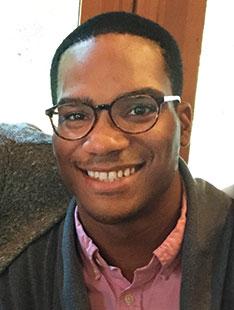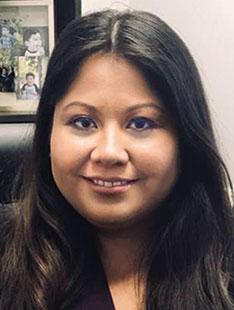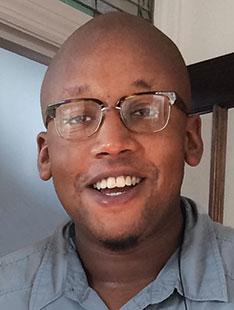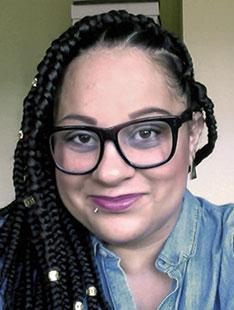Racial harmony. Understanding. Mutual respect. These values are central to the spirit of the Princeton Prize in Race Relations, a volunteer-led awards program celebrating high school students nationwide. First envisioned by Henry von Kohorn ’66, the program — which celebrates its 15th anniversary this month — has expanded from two to 27 regions, with more students applying each year. In the current cycle, applications increased by 30 percent.
“Something is changing — I think they’ve found their voice,” said Arati Johnston ’84, the head of the Alumni Council’s Committee on the Princeton Prize. “It’s the social-media outreach and the political environment. Students are far more engaged with these issues than my generation.”
More than 300 students have won the prize, and more than 850 have been awarded a certificate of accomplishment. To mark the anniversary, Princeton Prize recipients will join alumni who played key roles in the program and other supporters at a celebratory dinner at Prospect House.
Six winners from the program’s early years recently reflected on the impact it has had on their lives.
EVAN WRIGHT
“There’s no room to be neutral — you have to be doing something.”
In 2005, at an awards ceremony on Capitol Hill, Washington, D.C., native Evan Wright was presented the Princeton Prize by a special guest: Barack Obama, then a senator. It was a powerful moment, Wright remembers.
“You can just imagine,” Wright said. “I’m a black kid from southeast D.C. Getting this award was a big deal.”
He graduated from Brown University and joined Princeton in Asia in Singapore. Then he taught middle school students at the International School of Asia in Karuizawa, Japan.
“I realized that the mostly high-income students there were using terminology about sexual orientation in an inappropriate way,” said Wright, who saw a need for “real-talk” programming.
School officials had predicted that the middle school students wouldn’t be mature enough to benefit from a workshop on diversity and inclusion. “But I knew that kids are willing to have these conversations because I’d done this work in high school,” Wright said. He developed programming for more than 600 students and later returned to Japan every summer for seven years, teaching students how to direct their own workshops.
Wright later served as a field organizer for Hillary Clinton’s presidential campaign. Now, he works for Black Lives Matter Philadelphia and is a member of the diversity committee of the New Leaders Council, which organizes training programs for progressive millennials.
“There’s no room to be neutral — you have to be doing something,” he said. “So for me, this is what I can do.”
CLAUDIA CAYCHO
“When I go into court, people are not used to seeing a Hispanic attorney.”
Civil-rights leader Rep. John Lewis gave the keynote at the 2005 Princeton Prize ceremony in Atlanta, an experience Claudia Caycho says she’ll never forget. Caycho, who came to the United States from Peru as a teenager, was recognized for her work with La Voz (The Voice), a group she founded for Hispanic students at her high school that worked to reduce gang activity and strengthen students’ relationships.
Caycho attended law school, then practiced immigration law; she now specializes in workers’ compensation and personal-injury issues.
“When I go into court, people are not used to seeing a Hispanic attorney, especially in the South,” she said. “I still get confused with the interpreter or an assistant.”
Caycho said many of her clients hail from “underrepresented” communities. “A lot of them don’t like to report their accidents. A lot of people are scared —they don’t know what’s going to happen,” she said.
She is particularly proud of one recent case. Her client, a Honduran woman who was seeking asylum in this country, had survived a terrible car accident. “The insurance company wanted to intimidate her because of her immigration status,” Caycho said, adding that immigration status is irrelevant for insurance claims. The client won a $1.2 million settlement.
ALLEN WILLIAMS ’15
“It really opened my eyes to the good that Princeton alums do.”
Allen “A.K.” Williams II ’15, a Rochester, N.Y., native, is a punk-musician-poet turned full-stack application developer — someone with knowledge of all stages of software development. After winning the prize in 2008, he attended the first Princeton Prize Symposium on Race, now in its 10th year. He was recognized for his writings on race and identity.
“Winning was an incredible honor,” Williams said. “It was an encouraging affirmation that there were people out there who shared a part of the worldview that I held.” He participated in the literary scene at Princeton, performing at Black Student Union events and the University’s annual Martin Luther King Day ceremony. He volunteered for the Petey Greene prison-tutoring program and graduated with an A.B. in English.
“It really opened my eyes to the good that Princeton alums do,” Williams said. “It played a big part in making me feel like Princeton could be a place for me.”
TATIANA CRUZ
“I feel compelled to participate.”
Tatiana Cruz won the prize in 2005 for her efforts supporting the Latino community at Brookline High School in Massachusetts. Now an assistant professor of American history at Lesley University in Cambridge, Mass., Cruz said her research on racial justice is a natural extension of her high school activism.
“Many of my students are excited about challenging dominant narratives,” she said. The “history curriculum is already improving from what I had [in school].”
Last year, students at Cruz’s former high school in Brookline were caught using racial slurs in a Snapchat video. Cruz decided to get involved. “I’ve done mentoring-style work. I go back and speak on various racially related issues,” she said. “I feel compelled to participate.”
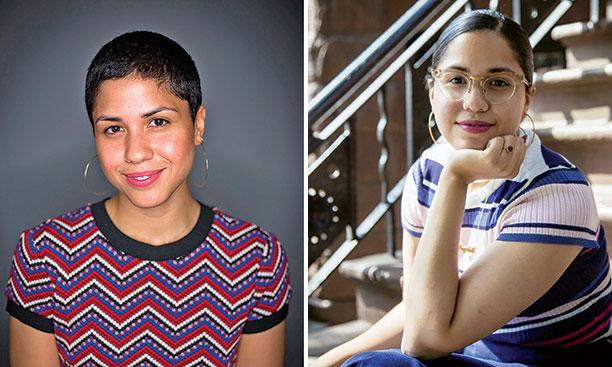
MARCEL SALAS & ALI ROSA-SALAS
“We have the power to mobilize.”
Sisters Marcel Salas and Ali Rosa-Salas, who are from New York City, won the prize in 2008 after producing Sticks and Stones, a short documentary. Co-produced with Adeyemi Mchunguzi, the film explores how “biased language” had an impact on their school, with discussions of the N-word and the expression “that’s so gay.”
The film “struck a chord,” said Rosa-Salas, who leads performance programming at the Abrons Art Center in Manhattan. She also curated the Afropunk Brooklyn festival’s “After Dark” series. “The Princeton Prize was really instrumental because of the visibility it afforded,” she added.
Her twin sister, Salas, is a filmmaker and a Ph.D. student at NYU who researches race and ideology. Producing the film ignited in her a love for the medium. “It was formative for me,” she said. “The prize definitely gave me the confidence to pursue it further.”
Salas said she’s inspired by social media’s impact on activism. “We live in a crazy world, but we also live in a hopeful time,” she said. “We have the power to mobilize.”

